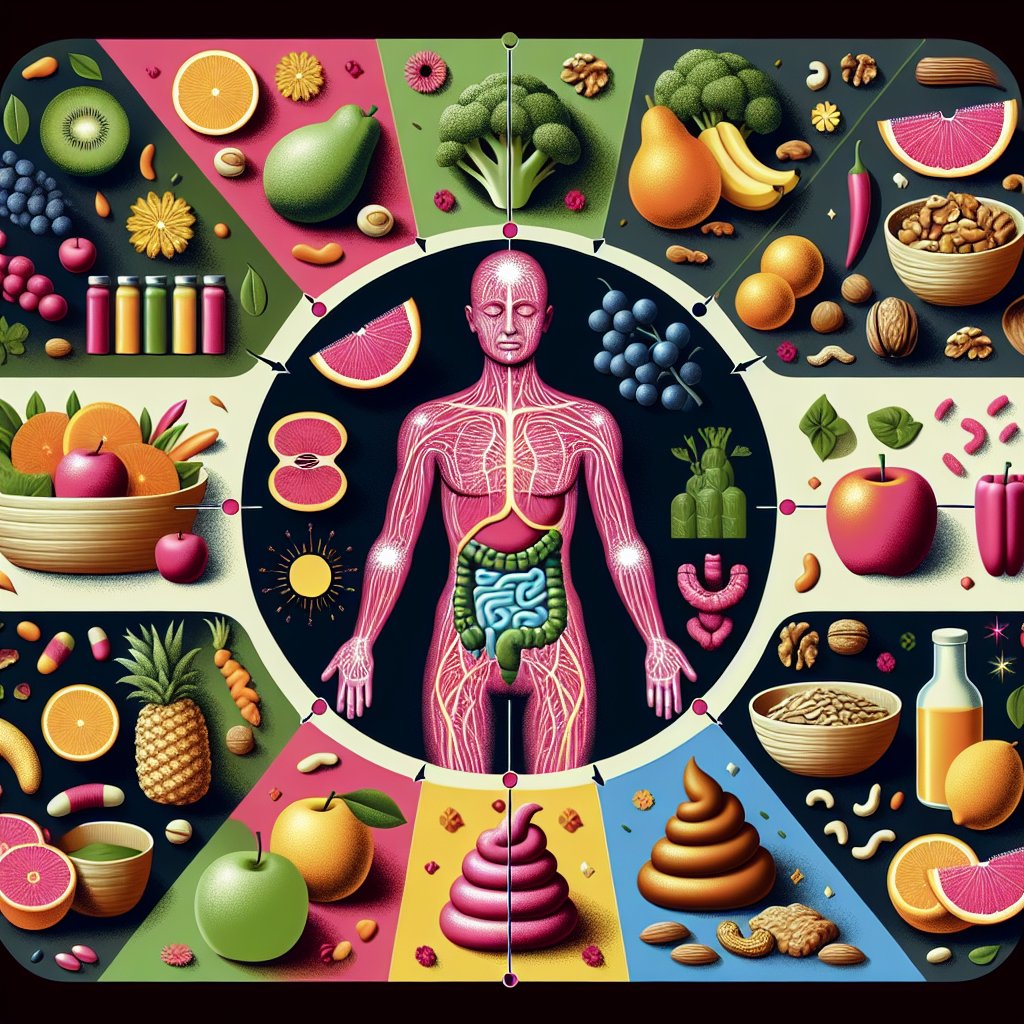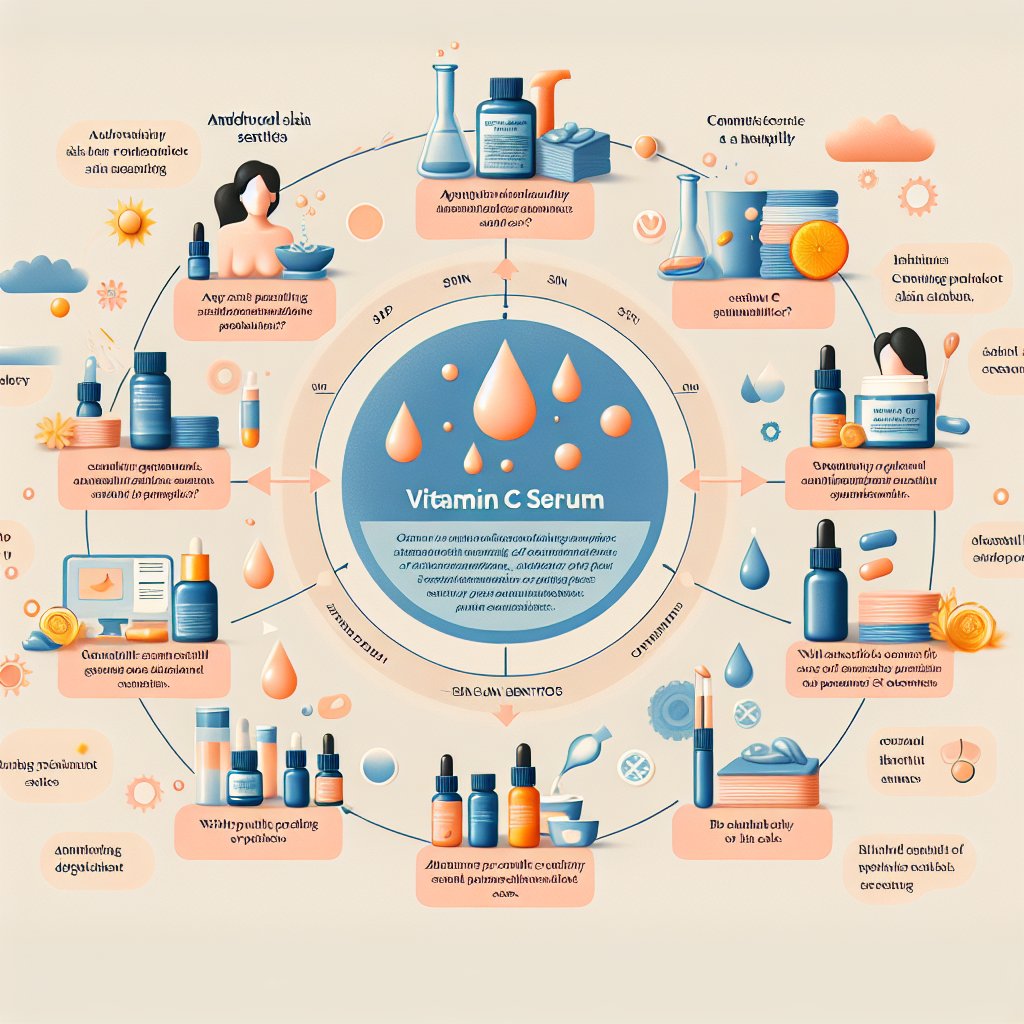Discover the Surprising Vitamins that Cause Constipation and How to Avoid It!
Understanding the Role of Vitamins in Your Health
Welcome, lovely readers! Today, we’re diving into the fascinating world of vitamins and how they play a crucial role in maintaining our overall health and well-being. As we navigate the path to a ketogenic lifestyle, understanding the importance of vitamins becomes even more essential. These tiny powerhouses provide us with the necessary nutrients to keep our bodies functioning at their best.
Vitamins are organic compounds that our bodies need in small amounts to function properly. They aid in a wide range of physiological processes, including energy production, immune function, and cell repair. In fact, there are 13 essential vitamins that our bodies require to carry out these vital functions.
However, amidst the countless benefits that vitamins offer, there’s a surprising twist to consider. Did you know that certain vitamins, when taken in excess, can potentially lead to an unexpected and uncomfortable issue – constipation? You might be wondering how something that’s meant to support our health can have such an effect. Well, let’s unravel this mystery together and explore how specific vitamins can inadvertently lead to constipation.

Understanding Constipation
Let’s talk about constipation. It’s not the most glamorous topic, but it’s something that many of us deal with at some point or another. Constipation is defined as having fewer than three bowel movements per week, with stools that are typically hard, dry, and difficult to pass. It can be uncomfortable and even painful, but the good news is that there are ways to manage and prevent it.
Symptoms of Constipation
So, how do you know if you’re constipated? Look out for these common symptoms:
- Infrequent bowel movements
- Straining during bowel movements
- Hard or lumpy stools
- A feeling of incomplete evacuation
- Abdominal bloating or discomfort
- Anal fissures or small tears in the anus
If you’re experiencing these symptoms, it’s essential to address the root of the issue to find relief.
Causes and Common Risk Factors
Constipation can be caused by a variety of factors, including:
- Low dietary fiber intake
- Dehydration
- Side effects of certain medications
- Changes in routine or lifestyle
- Ignoring the urge to have a bowel movement
- Ignoring the urge to have a bowel movement
Additionally, there are common risk factors that can contribute to constipation, such as being female, being 65 or older, leading a sedentary lifestyle, and experiencing high levels of stress. It’s important to recognize these factors and take proactive steps to mitigate their impact.
So, understanding the symptoms, causes, and risk factors of constipation can help you recognize when you might be dealing with it and take steps to address it. Next, let’s delve into the role that vitamins can play in causing constipation and how to navigate this potential challenge.
Role of Vitamins in Digestive Health
When it comes to digestive health and proper bowel function, the role of vitamins can be truly impactful. Vitamins play a crucial role in supporting the digestive system and ensuring that it functions optimally. Understanding how different vitamins affect bowel function is essential for maintaining overall health. Let’s explore the connection between vitamins and digestive health.
Vitamin B
Vitamin B complex, including B1 (thiamine), B3 (niacin), B6 (pyridoxine), and B9 (folate), plays a key role in supporting digestive health. These vitamins help in the metabolism of food, promoting efficient digestion. They also contribute to the production of stomach acid, which aids in breaking down food and absorbing nutrients. Adequate intake of B vitamins can help maintain a healthy digestive system.
Vitamin C
Vitamin C is well-known for its immune-boosting properties, but it also supports digestive health. It helps in the production of collagen, which is essential for maintaining the health of the digestive tract. Collagen provides structure and strength to the intestinal walls, supporting proper bowel function.
Vitamin D
Vitamin D plays a crucial role in promoting healthy gut bacteria, which is essential for proper digestion and absorption of nutrients. It also helps in reducing inflammation in the digestive tract, promoting overall gut health. Adequate levels of vitamin D are associated with a lower risk of digestive disorders.
Vitamin E
Vitamin E is known for its antioxidant properties, which can help reduce inflammation in the digestive system. It also supports the immune function of the gut, protecting against digestive infections and promoting overall digestive wellness.
In conclusion, vitamins play a vital role in supporting digestive health and proper bowel function. While these vitamins are essential for overall well-being, it’s crucial to maintain a balanced intake to avoid any potential constipation issues. Understanding the impact of vitamins on digestive health can empower individuals to make informed choices about their diet and supplement intake.
Vitamins That Can Cause Constipation
It may come as a surprise, but certain vitamins have the potential to cause constipation. If you’ve been experiencing this discomfort, it might be due to your vitamin intake. The two primary culprits known for potentially causing constipation are iron and calcium.
Iron
Iron is a crucial mineral for our bodies, as it helps in the production of red blood cells and carries oxygen to all parts of the body. However, when taken in high doses, iron supplements can lead to constipation. A study published in the American Journal of Gastroenterology found that iron supplementation is associated with an increased risk of constipation in adults.
Calcium
Calcium is essential for maintaining strong bones and teeth. However, when calcium supplements are taken in excessive amounts, they can also contribute to constipation. According to a study in the Journal of Internal Medicine, high-dose calcium supplementation was linked to gastrointestinal side effects, including constipation.
If you suspect that your constipation may be linked to your vitamin intake, it’s essential to consult with a healthcare professional for personalized advice. They can provide guidance on adjusting your dosage or exploring alternative options to alleviate your symptoms.
Now that we’ve identified the vitamins that can potentially cause constipation, let’s delve into some strategies to avoid this discomfort while maintaining a healthy intake of essential vitamins and minerals.
Understanding the Mechanism of Action: How Vitamins Cause Constipation
It may come as a surprise, but certain vitamins, when taken in excess, can actually lead to constipation. Let’s delve into the fascinating mechanism of action behind this phenomenon and understand how these vitamins affect our digestive system.
Vitamin D:
When it comes to constipation, an excess of vitamin D can inhibit the absorption of calcium, leading to its accumulation in the colon. This can result in hardened stools and difficulty in bowel movements, ultimately causing constipation.
Calcium:
Calcium, although essential for bone health, can cause constipation if taken in excessive amounts. On the one hand, calcium has a binding effect, making it harder for the intestines to move food along. On the other hand, it can also reduce the secretion of fluids in the intestines, further exacerbating constipation.
Iron:
Iron is crucial for oxygen transport in the body, but an excess of iron supplements can lead to constipation. This is because iron has a constipating effect, slowing down the contractions of the muscles in the digestive tract, which can result in difficulty passing stools.
Understanding how these vitamins influence our digestive system can be key to preventing constipation when taking supplements. By being mindful of the recommended daily allowances and not exceeding them, we can ensure a healthy balance of these vitamins without the undesirable side effect of constipation.
Tips for Avoiding Constipation from Vitamins
Experiencing constipation due to vitamins is a common concern, but there are practical strategies to prevent or alleviate this issue. Here are some tips:
Adjust Dosage and Timing
If you’re experiencing constipation from a specific vitamin, consider adjusting the dosage and timing of intake. For example, iron supplements are known to cause constipation in some individuals. Lowering the dosage or taking it every other day instead of daily might help alleviate this side effect. Additionally, taking vitamins with food can sometimes aid in their absorption and reduce the likelihood of digestive discomfort.
Incorporate Fiber-Rich Foods
Increasing your intake of fiber-rich foods can help prevent or alleviate constipation caused by vitamins. Foods such as leafy green vegetables, nuts, seeds, and berries can promote regular bowel movements and mitigate the effects of constipation. Consider adding these foods to your diet while taking vitamins to support digestive health.
By implementing these practical tips, you can effectively manage and prevent constipation related to vitamin supplementation, helping you maintain overall well-being and digestive comfort.
Consulting a Healthcare Professional
Before making any changes to your vitamin regimen, it’s crucial to emphasize the importance of seeking guidance from a healthcare provider. This is especially true when it comes to understanding which vitamins cause constipation and how to avoid it. Consulting a healthcare professional ensures that you receive personalized advice that takes into account your specific health conditions, medications, and individual needs.
Research has shown that certain vitamins, if not taken in the right dosage or form, can lead to constipation in some individuals. For example, iron supplements, often recommended to combat anemia, can be a common culprit. Iron is essential for many bodily functions, but an excess of this mineral can lead to digestive issues, including constipation. Similarly, calcium and vitamin D, while vital for bone health, can also cause constipation if not balanced with magnesium and other nutrients.
Conclusion
Understanding the relationship between vitamins and constipation is crucial for maintaining overall health and well-being. In this article, we’ve delved into the surprising vitamins that can cause constipation and provided valuable insights into how to avoid it.
We’ve learned that certain vitamins, such as iron and calcium, when taken in excess, can lead to constipation. However, it’s important to note that these vitamins are essential for our body’s functions, so it’s not about completely eliminating them from our diet but rather being mindful of our intake.
By prioritizing a well-rounded diet with plenty of fiber-rich fruits and vegetables, staying hydrated, and incorporating physical activity into our daily routine, we can effectively support our digestive health while still reaping the benefits of these vital vitamins.
Moreover, consulting with a healthcare professional is always advisable, especially for those taking iron or calcium supplements. They can provide personalized recommendations and help adjust the dosage to ensure a healthy balance and mitigate the risk of constipation.
Ultimately, a holistic approach to nutrition and overall wellness is the key to maintaining a harmonious relationship between vitamins and our digestive system. It’s all about balance, mindfulness, and making informed choices to support a vibrant and energetic lifestyle.
Here’s to understanding our bodies better and making empowered choices for a healthier, happier you!


